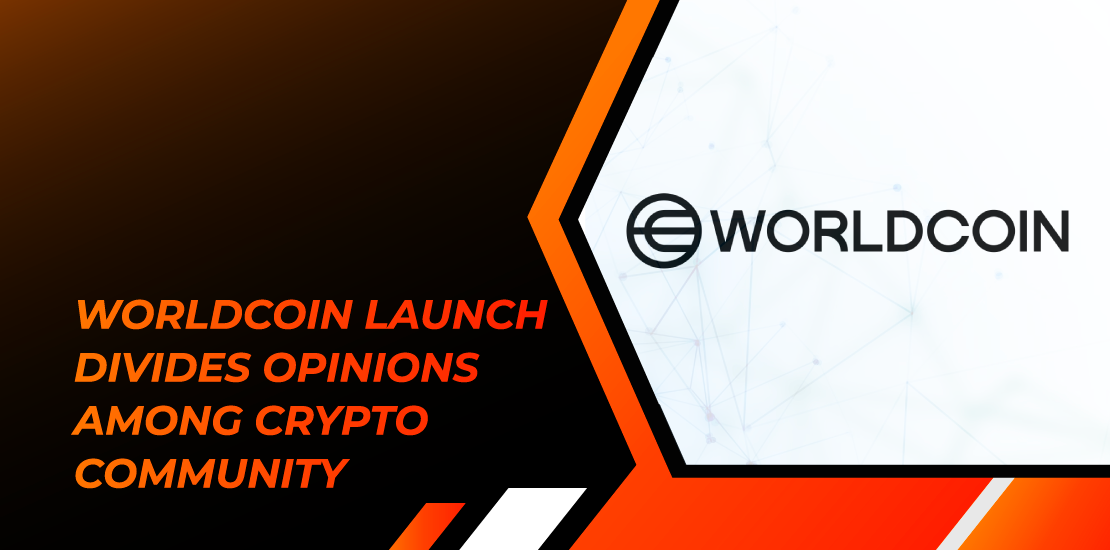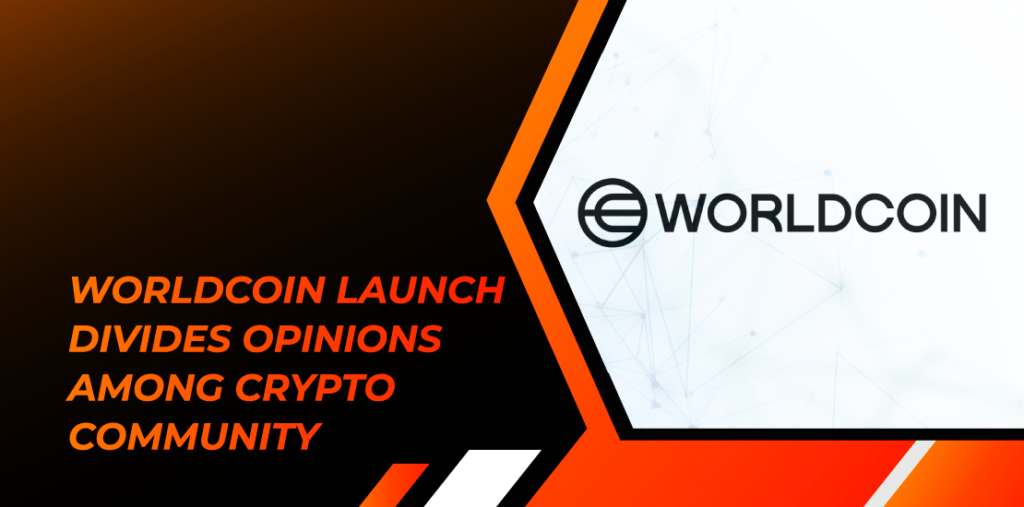- July 27, 2023
- Posted by: [email protected]
- Category:


The recent launch of Worldcoin, a decentralized ID protocol, has sparked a flurry of mixed reactions within the cryptocurrency community. This blockchain-based digital passport platform has been met with both excitement and skepticism as people debate its centralization, privacy, and security aspects.
Worldcoin debuted its native cryptocurrency, WLD, on July 24, prompting prominent exchanges such as Binance to declare their support for the project. Worldcoin’s core consists of two fundamental components: World ID, a privacy-focused digital identity system, and WLD, which users receive when they set up a wallet.
To become a part of the Worldcoin ecosystem, users must go through a process where they provide a scan of their iris using specialized Orb hardware devices developed by the project. This step serves as a “proof-of-personhood” mechanism, cryptographically safeguarded, and subsequently used as the World ID, as explained by the founders, Alex Blania and Sam Altman, in a letter accompanying the project’s launch. They emphasized that this approach allows users to verify their real and unique identities online while maintaining complete privacy.
World IDs will be stored locally on users’ mobile devices and utilized to demonstrate their identity in a privacy-centric manner. Zero-knowledge proofs will be employed to protect the underlying data, including biometric information, Know Your Customer (KYC) details, and Anti-Money Laundering (AML) data.
Additionally, Worldcoin intends to enable users to “reserve” their IDs using their phone numbers in select countries. However, an iris scan will be mandatory to complete the process and receive their World ID.
The launch of Worldcoin caught the attention of influential figures in the cryptocurrency industry, with Ethereum co-founder Vitalik Buterin being one of them. Buterin delved into the intricacies of proof-of-personhood blockchain protocols and explored the potential benefits and pitfalls of projects like Worldcoin, which aim to pioneer this use case. He highlighted the capacity to establish human identity and its potential role in distributing universal basic income in the future as key motivations behind proof-of-personhood protocols. However, Buterin also voiced concerns about the project’s reliance on biometrics, potential privacy and security issues related to the Orb hardware, and the broader ethical considerations surrounding biometric data usage.
Other notable figures also expressed their thoughts on Worldcoin. Twitter co-founder and Bitcoin advocate Jack Dorsey described the project’s “attempt at global scale alignment” in just one word. Meanwhile, Anita Posch, a Bitcoin advocate, raised concerns about the centralized nature of Worldcoin and the vast amount of data it would manage, considering it a potential point of failure.
EthHub co-founder Anthony Sassano offered a thought-provoking perspective, suggesting that entities like FTX and Three Arrows Capital (3AC) could refund all creditors with the appreciation of their early-stage investments in Worldcoin.
Worldcoin’s white paper revealed that the protocol initially operated on Polygon during its beta phase but now runs on the Ethereum mainnet using a scalable batching architecture through layer-2 protocol. The project has already managed to enroll over 2 million users.
As Worldcoin continues to evolve, the cryptocurrency community remains divided, with some optimistic about its potential to revolutionize digital identity and others apprehensive about the associated risks of centralization, privacy infringements, and security vulnerabilities. Only time will tell how this ambitious project navigates these challenges and carves its place in the rapidly evolving world of cryptocurrencies.



